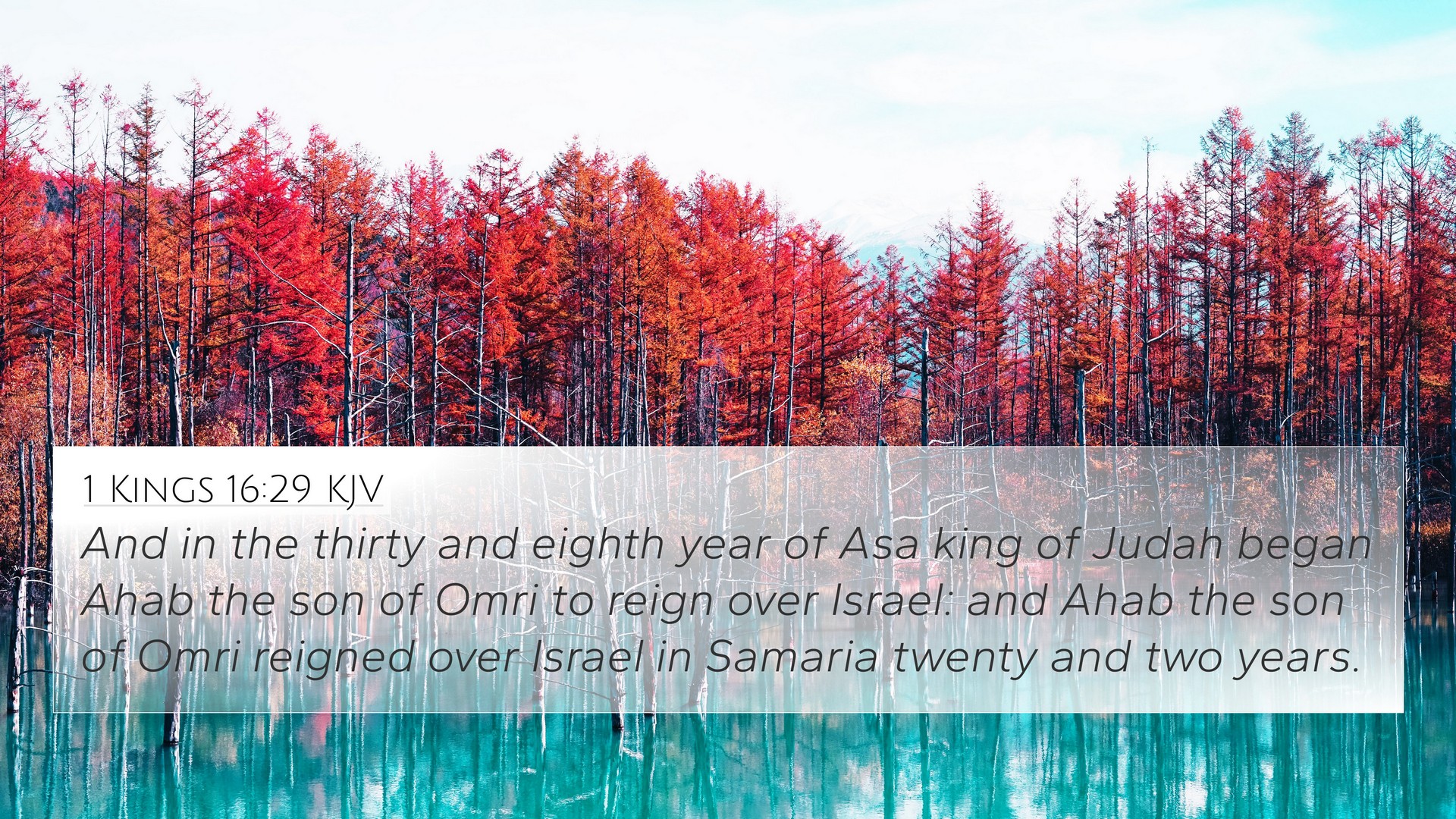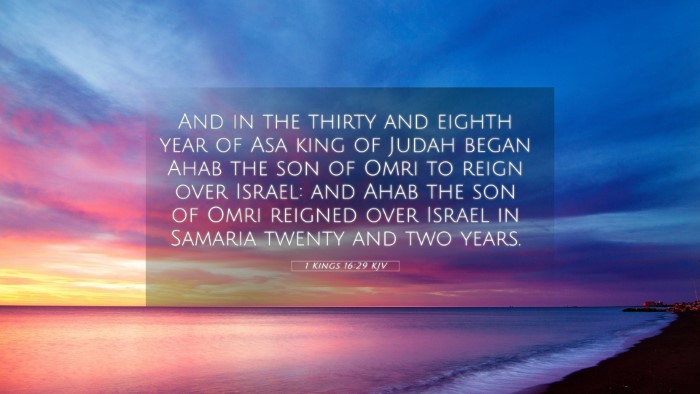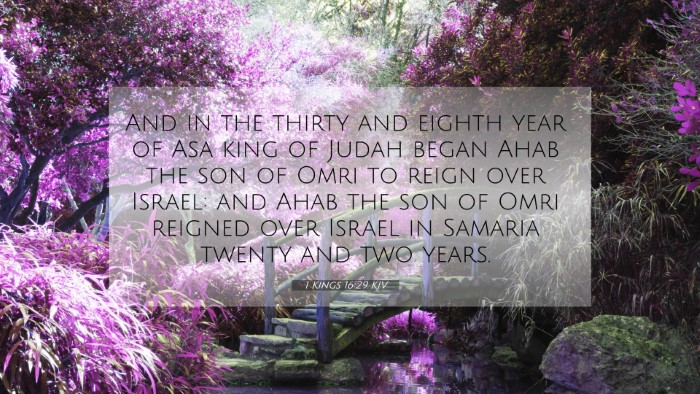Understanding 1 Kings 16:29
Verse Overview:
1 Kings 16:29 states:
"In the thirty-eighth year of Asa king of Judah began Ahab the son of Omri to reign over Israel: and Ahab the son of Omri reigned over Israel in Samaria twenty and two years."
This verse marks the ascent of Ahab, a pivotal figure in the history of Israel's monarchy, establishing the context for his reign and the implications of his actions on the nation of Israel.
Commentary Insights
This commentary draws insights from the works of Matthew Henry, Albert Barnes, and Adam Clarke to explore the significance of this verse:
Ahab's Reign Contextualized
-
Historical Context:
Matthew Henry highlights that Ahab’s reign was significant due to the contrast with the previous king, Asa of Judah. This establishes a timeline within the divided kingdom and emphasizes the moral and spiritual deficiencies in Ahab’s administration.
-
The Role of Omri:
Adam Clarke points out that Omri, Ahab's father, had established a strong foundation for his son’s reign, particularly with his consolidation of power and the establishment of Samaria as the capital, which influences Ahab's political maneuvers.
-
Duration of Reign:
Albert Barnes notes that the specific mention of "twenty and two years" indicates a long tenure marked by significant events that would occur, particularly Ahab's interactions with the prophet Elijah and his struggles against foreign powers.
Thematic Significance
The rise of Ahab represents deeper moral themes in Scripture, particularly in how leadership impacts the spiritual condition of a nation. Ahab's reign is characterized by idolatry and spiritual decline, contrasting sharply with the earlier kings who followed God’s commands.
Bible Verse Cross-References
To further illuminate the themes found in 1 Kings 16:29, here are some related verses:
- 1 Kings 18:17-18: Ahab’s confrontation with Elijah, illustrating the conflict between divine authority and royal power.
- 1 Kings 21: The account of Naboth’s vineyard, revealing Ahab’s moral failings and the consequences of his reign.
- 2 Kings 3:1: Ahab’s efforts to strengthen alliances, showcasing political maneuvering in Israel's history.
- Deuteronomy 17:14-20: God’s instructions concerning kings, highlighting the ideal characteristics that Ahab lacks.
- 1 Kings 22:52: Ahab's legacy and the continuation of his policies through his son Ahaziah.
- Micah 6:16: Prophetic commentary on the iniquities of Israel's rulers, including Ahab’s reign.
- Matthew 1:12: The genealogical connection between Ahab's lineage and the lineage of Christ, underscoring the continuation of Israel's narrative.
Connections Between Bible Verses
This verse encourages a deeper exploration of those initial themes compatible with the broader biblical narrative:
- Inter-Biblical Dialogue: The contrast between Ahab and God’s prophets, reflective in both Kings and the prophetic writings.
- Linking New Testament themes: Exploring how the actions of Ahab prefigure later conflicts seen in the New Testament, particularly concerning Christ and the leaders of Israel.
Conclusion
In summary, 1 Kings 16:29 serves as a portal into Ahab's reign, encapsulating themes of leadership, idolatry, and prophetic challenge while inviting comparative analysis with other biblical texts. Understanding this verse requires an appreciation for the interconnectedness of Scripture, utilizing cross-references to enrich our study.
Tools for Bible Cross-Referencing
For further exploration of these themes, consider utilizing a Bible concordance or a Bible cross-reference guide. These resources can enhance your study by providing tools for identifying connections between Old and New Testament texts.
Further Study Suggestions
As you deepen your understanding of 1 Kings 16:29, look for:
- Comparative Bible verse analysis: Engage with themes across the Gospels to see Christ’s fulfillment of Old Testament prophecy.
- Bible verse parallels: Compare Ahab's actions with those of other kings in Israel and Judah.


